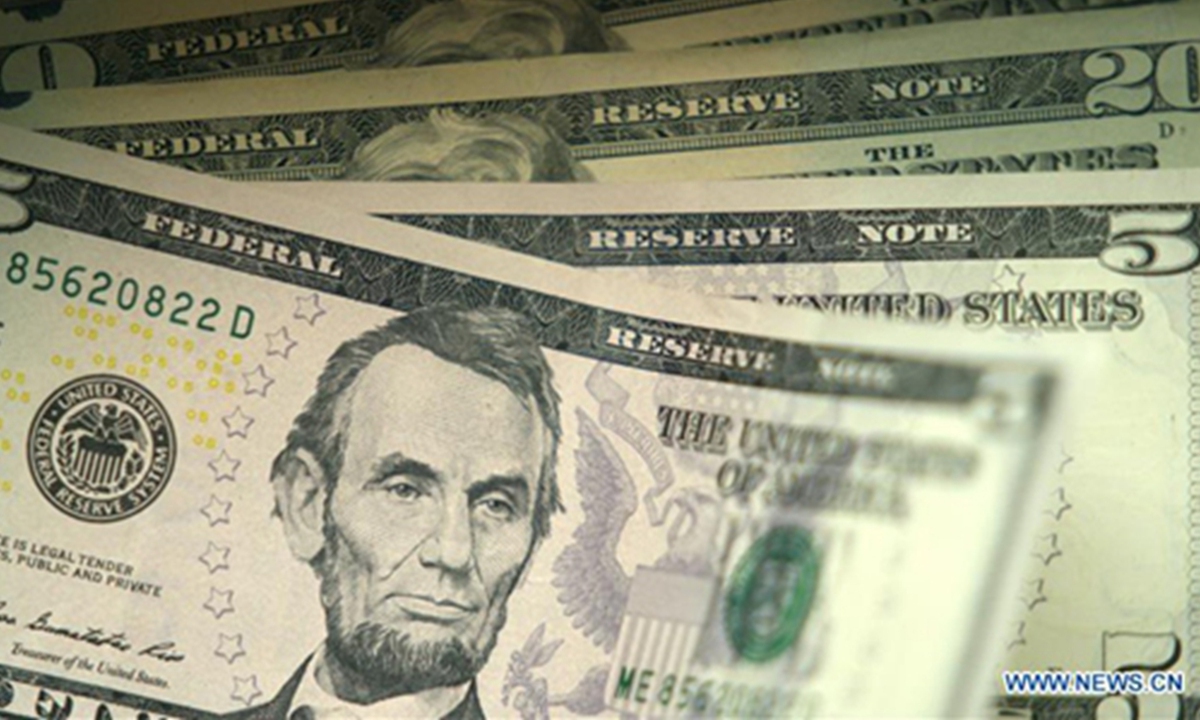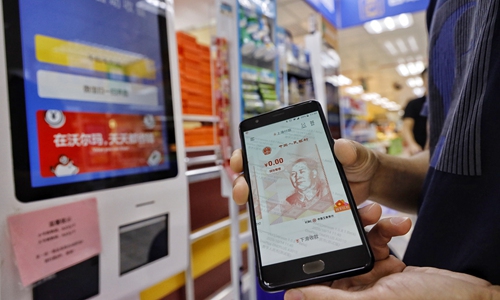
Photo: Xinhua
The United States is not a front-runner in creating its own sovereign cryptocurrency, but thanks to the country's enormous financial influence, the world will still be watching closely any new developments by its central bank.Federal Reserve Chairman Jerome Powell told the US Congress on Tuesday that the central bank is "looking carefully" at issuing a digital dollar. With the dollar's dominant role among the world's reserve currencies, the US doesn't have to be first in rolling out a digital currency, but it needs to be a "high priority," according to Powell's testimony.
Powell is not the only top US official who has shown a supportive stand on the digital dollar. At a virtual conference on Monday, US Treasury Secretary Janet Yellen also signaled interest in backing research into issuing sovereign digital currencies, which she said "could result in faster, safer and cheaper payments."
Remarks by senior US officials indicate the country's intention to accelerate the pace of developing a digital dollar to eventually replace the greenback tender.
With the marked advances in electronic financial technology, 5G networks, smartphones and e-commerce, the world's major economies have been increasingly aware of the trend moving towards digital currencies that will be an essential part of the future monetary system.
Meanwhile, it is becoming increasingly clear that blockchain-backed cryptocurrencies, represented by Bitcoin, are still considered as speculative assets, lacking the stability for widespread use. So far, Bitcoin and other similar non-official digital currencies have already caused problems and concerns within financial markets, with many economists warning investors against the risks.
In this context, it is particularly necessary for central banks around the world to work on digital currencies, which will not only be an indispensable part of monetary system in the mobile internet era, but also be conducive to curbing financial risks.
At present, China is at global front-runner and pioneer in developing a digital yuan, which is being trialed across multiple Chinese cities, while countries like the UK, Canada and Japan are also actively studying the viability of their digital currencies.
Despite some market worries that the issuance of central-bank digital currencies may lead to a new round of cryptocurrency competition or rivalry, the creation of a potential digital US dollar remains of great significance.
Compared with other countries, the dollar hegemony has given the US government less imperative in pioneering in digital financial system innovation. Digital payments and related applications in the US are not growing as fast as in China, which may have something to do with the former's national conditions like the dominant role of credit cards in settling payment.
Against this backdrop, a digital US dollar may facilitate social shift toward faster and easier payment, a trend that may encourage a connection between the two countries' e-commerce markets, which will facilitate cross-border trade settlement too.
Yet, it is still worth noting that given the US dollar's predominance, the US needs extra caution when it comes to issuing a digital dollar. If its sovereign-backed digital currency brings unnecessary risks to the market, the dollar may suffer.

